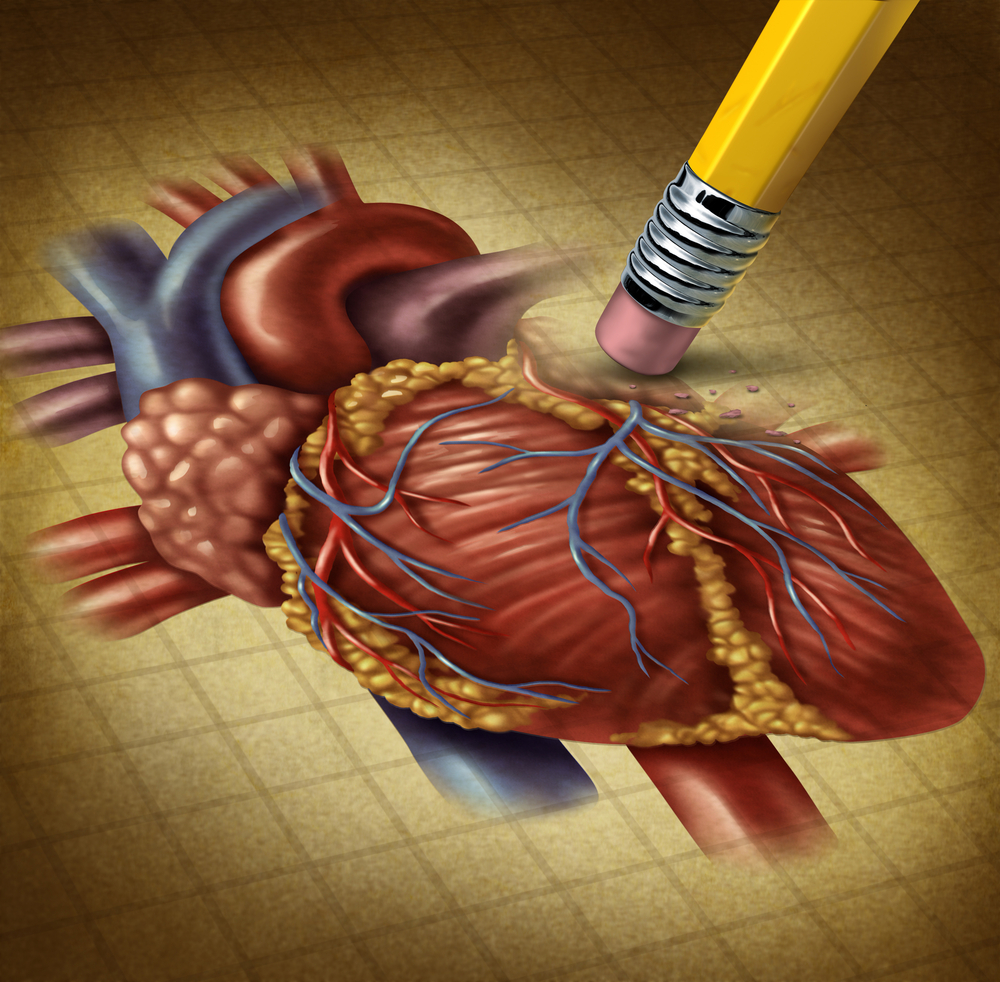Combination Medication Decreases Heart Decline in Muscular Dystrophy
Written by |

 Researchers at the Ohio State University Wexner Medical Center, along with experts at several other medical facilities, have found that Duchenne muscular dystrophy (DMD)-related declines in heart functioning may be slowed by already existing heart medications. The research appeared in the online version of The Lancet Neurology.
Researchers at the Ohio State University Wexner Medical Center, along with experts at several other medical facilities, have found that Duchenne muscular dystrophy (DMD)-related declines in heart functioning may be slowed by already existing heart medications. The research appeared in the online version of The Lancet Neurology.
DMD is characterized by a lack of dystrophin, a protein that nourishes muscle cells. Without dystrophin, muscles degenerate and weaken quickly. DMD predominantly affects males, and those afflicted may survive only until their 20s or 30s. Most patients develop heart or respiratory failure, a leading cause of death in males with DMD.
Cardiologist and Professor Dr. Subha Raman led the multiple-site clinical trial. The investigators gave trial participants the combination of eplerenone and either an angiotensin converting enzyme (ACE) inhibitor or an angiotensin receptor blocker (ARB).
Raman stated “We believe this research offers evidence that supports the early use of these readily available medications.”
[adrotate group=”3″]
The study was based on earlier results showing that the same medication combo reduced muscle damage and preserved function in animals that had an experimental type of DMD.
The clinical trial in humans included 42 boys with DMD who also had early heart muscle damage as measured by cardiac magnetic resonance imaging (MRI).
All of the subjects took one pill of either 25 milligrams of eplerenone or a sugar-pill control (placebo) once a day for one year. The entire study occurred between from March 2012 to July 2014.
The MRIs were given before the participants started the medication, and six and 12 months after study medicine. At 12 months, the eplerenone treatment group had less of a decline in left ventricular function than the group receiving placebo. A minimum of six months of treatment was needed for the medication to have this effect.
Dr. Linda Cripe, a pediatric cardiologist and co-investigator at Nationwide Children’s Hospital in Columbus, was optimistic about the study results and their possible clinical implications, stating, “This could quickly become standard of care for patients with DMD.”
Raman added: “We know that a sensitive measurement of heart function known as strain is abnormal well before complications like congestive heart failure and fatal arrhythmias occur in DMD. By impacting this earliest detectable change in heart function, we expect and hope to see even greater benefits with longer-term follow-up of these patients. Slowing the progression of heart disease should translate into improved quality of life for affected individuals and their families.”
The study occurred due to the efforts of a family affected by DMD. Ryan Ballou, a 27-year-old from Pittsburgh with DMD, along with his father Ty Ballou, started a Foundation known as BallouSkies to raise funding specifically for Raman’s work on heart disease in DMD. The foundation provided the main support for this clinical trial.
Dr. John Kissel, neurologist, at Ohio State’s Wexner Medical Center, stated, “BallouSkies is a great example of how dedicated people working together can make a tremendous difference in fighting even the most serious conditions.”
Raman noted “This research progressed much faster thanks to their support. The work we have accomplished in just a few years would have taken a decade or more if we had to seek funding from traditional grant mechanisms alone.”
Because the medications used are already approved by the FDA, the use of this combination to prevent heart decline in DMD may occur more quickly.





